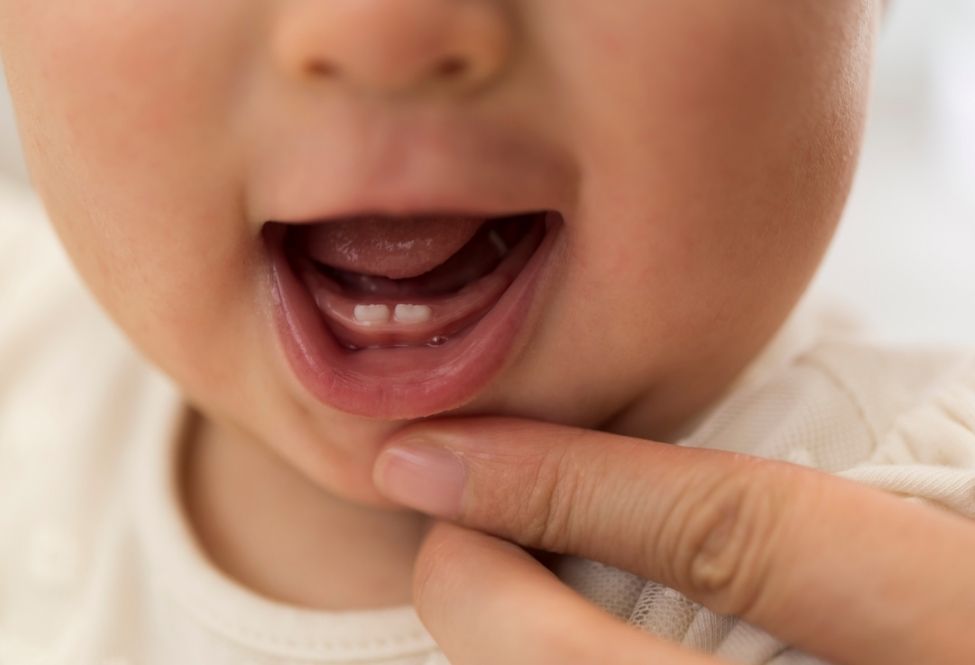Teething is considered a difficult time to go through and can be very painful. As a general rule, teething occurs around the sixth month (sometimes earlier or later depending on the child), with the arrival of the incisors, which are the first teeth to appear, followed by the premolars and canines. Teeth grow on average until the age of 3 when children have their 20 “first teeth”.
How can you tell when a flare-up is coming?
The symptoms are many. Your baby drools a lot, has an unusually bad temper, puts everything in his mouth, and bites it as hard as he can… including your fingers! He may cry a lot, have inflamed gums, sleep and bowel problems, fever flare-ups, reduced appetite, and irritation on his cheeks and bottom. Your pediatrician can intervene to bring the fever down. To relieve your baby, you will find soothing gels to be applied by gently massaging the gums, as well as homeopathic remedies that your pharmacist can advise you. You can also massage the gums very gently with a soft baby toothbrush. Choose a rubber teething ring that cannot be completely inserted into the mouth and is unbreakable. Today, health services advise against amber or hazel necklaces because of the risk of choking the baby. For the same reasons, raw, hard vegetables should not be given to a child under 2 years of age.
Care from the first baby tooth!
Advice for parents…
Parents should brush their child’s teeth with fluoridated children’s toothpaste once a day from the time the first baby tooth appears. At the latest when the second molar appears (at about 2 years of age), the teeth should be brushed twice a day with fluoride toothpaste for children.
Prophylaxis – for baby teeth
Together is better.
- Brush your teeth at the same time as your child. You and your older siblings should set the example.
- Replace toothbrushes every one to two months.
- Go to the dentist regularly with your child from the age of two.
Prophylaxis – for older children
School dental services help to prevent cavities. In Switzerland, children are regularly informed by the school dental service about oral hygiene and tooth-friendly nutrition from kindergarten through to secondary school and beyond. Thanks to this prophylaxis system, caries have been reduced significantly.











0 Comments